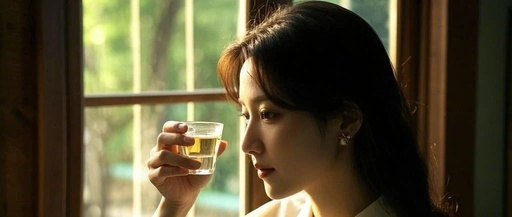The Magical Baijiu: The Path of Yin-Yang Balance Hidden in Life
When we drink alcohol, we often hear phrases like: “Baijiu is the essence of the sun and moon, and the liquor is the essence of grains, the more you drink, the younger you become!” If you think of Baijiu as the essence derived from grains, then you truly understand Baijiu, as it indeed can be considered the essence of the sun and moon.
Did you know that Baijiu is a concrete manifestation of the character “易” (yi) in the Chinese classic, the I Ching? Look at the character “易”; the top part represents the “sun” and the bottom part represents the “moon.” The sun and moon represent what? They actually symbolize Yin and Yang, or we can say water and fire. The sun is the ultimate expression of fire, while the moon is the essence of water; one is the hottest point of the sun, and the other is the coldest point of the moon, which is indeed the essence of water and fire. People often say that water and fire cannot coexist, yet intriguingly, Baijiu can merge these two elements together. At first glance, Baijiu appears as pure as water; however, upon tasting it, it has the fierce quality of fire. Baijiu embodies the appearance of water and the nature of fire, which is a classic representation of the Chinese cultural concept of “水火既济,阴阳平衡” (Water and Fire Harmonized, Yin-Yang Balanced).
Because of this characteristic, Baijiu can exert some marvelous effects. If you are exhausted today, drinking a couple of liang (a traditional Chinese measurement) of Baijiu in the evening can quickly relieve your fatigue. But do not underestimate this liquor; people also call it the “King of All Medicines!” However, if you are generally well and then binge drink with friends, you will feel utterly exhausted the next day. Why is that? Because the role of Baijiu is to maintain balance. If you are tired, it helps you recover; but if you drink excessively when you have no issues, it will leave you drained.
This balance corresponds to our life and state of being. In Chinese philosophical thought, Traditional Chinese Medicine (TCM) and the I Ching share the same origin. Why do I say this? Because both emphasize balance. There is a saying in TCM that if a person does not get sick throughout the four seasons, that is not the healthiest state. If you do not get sick all year round, that in itself is problematic, indicating that you are not in tune with the changes in nature’s weather. So what does it mean to be healthy? For example, catching a slight cold before the seasonal transitions in spring and autumn; or experiencing a bit of stomach upset from cold drinks in the hot summer, can actually be beneficial. Those who do not get sick all year round may find themselves completely overwhelmed when they do fall ill.
There is a Chinese proverb that says, “Pain, pain, pain; you won’t survive without a little moan.” If a person is full of vitality every day and has no illnesses, they are likely to collapse easily when they do get sick. Yet, some people are quite interesting; you see them say, “I can’t go on” this year, and ten years later, they still say, “I can’t go on,” yet they have lived on. They always have minor ailments, frequently take some medicine, and their bodies develop a resistance, gaining the ability to withstand challenges, which is also quite good.
Of course, nothing should be excessive; balance must be maintained. You see, the philosophical thought of Yin-Yang balance in China, along with the spirit of the I Ching, is subtly reflected in our lives. The literature left by our ancestors provides us with a wealth of rich ideological resources.

